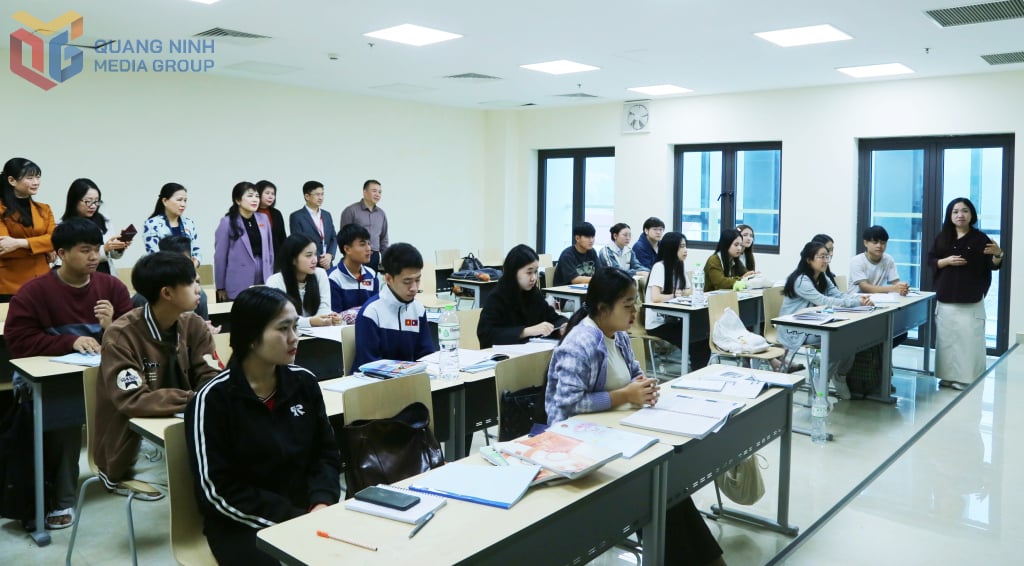
There are currently 39 vocational training institutions (VET) and institutions participating in VET activities in the province, including 25 public institutions and 14 institutions belonging to enterprises with different governing bodies. The quality of vocational training at VET institutions has been gradually improved, many training models associated with production and business practices have been implemented, creating close links between training institutions and enterprises. In the period of 2020-2024, the VET enrollment results of Quang Ninh reached 195,404 people with over 120 training occupations.
In addition to the province's support and incentive mechanisms and policies in improving the quality of human resources, the province has always paid attention to and directed the implementation of the linkage of education, training and employment. In particular, linking vocational education and continuing education (VET) with enterprises and the labor market has become a strong point in Quang Ninh. Currently, there are over 200 enterprises in the province that have signed cooperation agreements with vocational education institutions to organize joint training, internship and post-graduation recruitment activities. Implementing the linkage program, enterprises proactively participate in giving opinions on the development of training programs; supporting equipment and practice materials; receiving students to intern and learn at enterprises; and recruiting directly after graduation.
Many enterprises also place training orders according to actual recruitment requirements, helping vocational training institutions adjust their programs to suit the necessary professional skills. Typically, the Vietnam Coal and Minerals College has a strategic cooperation with TKV to implement a dual training model (studying at school and working at enterprises), helping students both study and accumulate practical experience. The Vietnam - Korea Quang Ninh College cooperates with Korean enterprises in Dong Mai Industrial Park, organizing specialized training in technical professions, supporting students to access the international labor market... Indevco Group and the Vietnam Coal and Minerals College also signed a cooperation agreement on human resource development, in which the two sides orient, place orders and organize training, teaching, improving the quality of human resources; accepting students for internships, creating a professional working environment to help students gain more knowledge, experience, practice and develop their capacity...
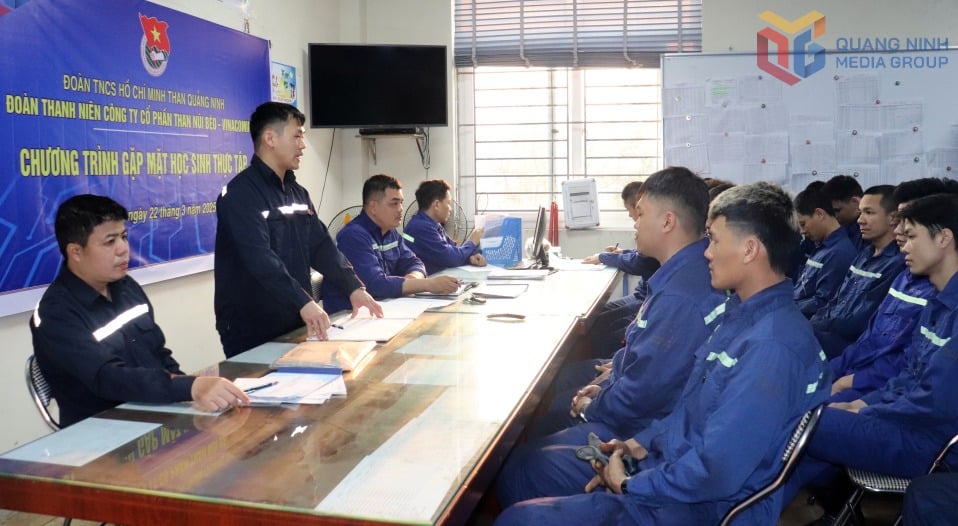
In particular, in the 2020-2024 period, the province has promoted the 3-party coordination model (State - School - Enterprise) in vocational education. In particular, the career guidance model has been implemented to change the awareness of students and parents about choosing a career after secondary school. This also contributes to reducing the burden on the general education system, meeting the local technical human resource needs.
Typically, in the localities of Quang Yen, Cam Pha, Ha Long - where many industrial parks and manufacturing and service enterprises are concentrated, secondary schools have proactively coordinated with vocational training institutions, career guidance centers and enterprises to organize early career counseling and orientation for students. From grades 8 and 9, students can participate in regular career counseling sessions organized by the school, integrated into civic education lessons or extracurricular activities.
Students are also provided with diverse information about occupations, labor market trends and job opportunities. At the same time, they are organized to visit and experience vocational training facilities, factories, plants, tourist areas, etc. to better understand the characteristics of the occupation, thereby making decisions that are suitable for their abilities and strengths. Thanks to that, the rate of students choosing to study a trade after graduating from junior high school in areas implementing this model increased from 15% (in 2020) to about 25% (in 2024).
In addition, vocational training institutions also coordinate with enterprises to provide short-term vocational training according to orders - this is a flexible model, meeting the needs of recruiting basic technical workers of local enterprises. District-level vocational training centers are training organizations, coordinating with enterprises to develop content, duration and teaching methods suitable for each specific job position. Training programs are usually less than 3 months, focusing on high-demand industry groups such as: Industrial sewing, food processing, civil electrical engineering, motorbike repair, community health care, etc. After completing the course, learners are evaluated by enterprises and granted primary vocational certificates, creating job opportunities at the unit.
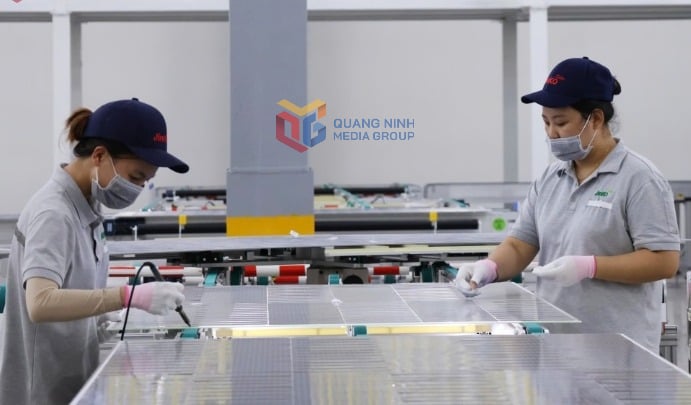
The coordination between the state, schools and businesses has brought about positive results. In the period 2020-2024, 84,059 workers were introduced to businesses; 48,174 workers were trained at businesses; 581 teachers were trained in skills; 34,017 workers at businesses had their skills improved... In addition, the development of new training programs between schools and businesses has been continuous, contributing to the close connection between vocational training institutions and businesses.
In recent times, the province has also paid attention to international cooperation in vocational education and continuing education. Some outstanding programs and projects have been implemented, such as: Cooperation with the German International Cooperation Agency within the framework of the Program "Innovation of vocational training in Vietnam", to support capacity building for vocational lecturers, develop a set of tools to assess vocational skills and improve training programs; cooperation with KOICA (Korea) to implement high-tech training programs in the fields of electromechanics and automotive technology at the Vietnam - Korea College; cooperation with JICA (Japan) in receiving technical experts to support teaching and exchange advanced training programs in mechanical engineering and industrial electricity... In addition, the province also organizes training for international students, mainly Lao and Cambodian students in the fields of engineering, agriculture, and construction to enhance regional exchange and cooperation.
The connection in vocational training and job introduction has been contributing to improving the quality of human resources, meeting the employment needs of workers as well as providing quality labor for businesses in the area.
Source: https://baoquangninh.vn/gan-ket-dao-tao-nghe-gioi-thieu-viec-lam-3357845.html




![[Photo] Prime Minister Pham Minh Chinh chairs conference on anti-smuggling, trade fraud, and counterfeit goods](https://vphoto.vietnam.vn/thumb/1200x675/vietnam/resource/IMAGE/2025/5/14/6cd67667e99e4248b7d4f587fd21e37c)




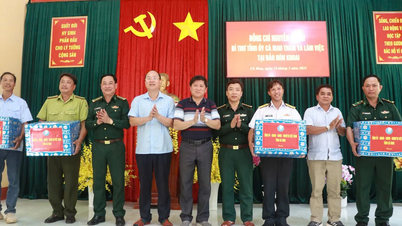
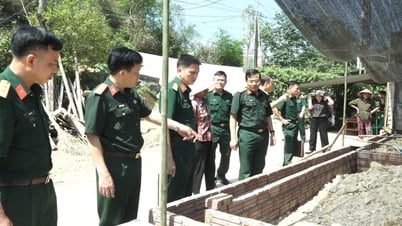
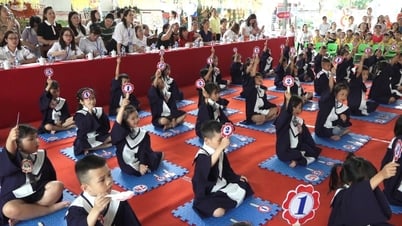
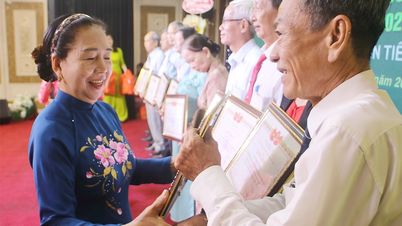
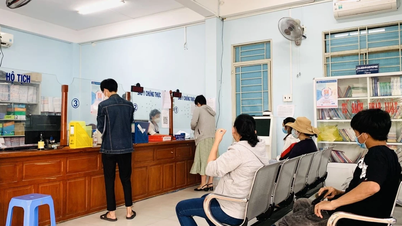







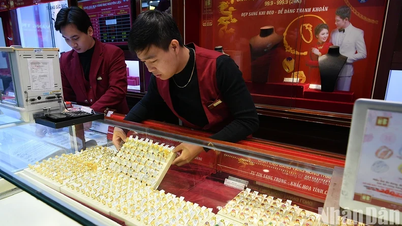

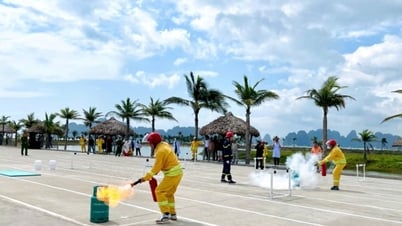










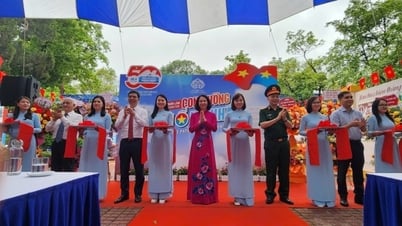










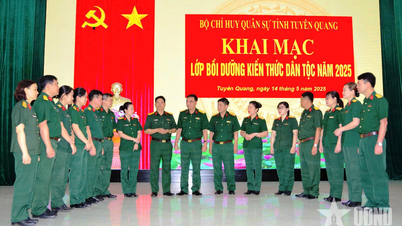





















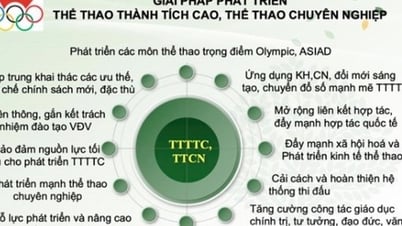


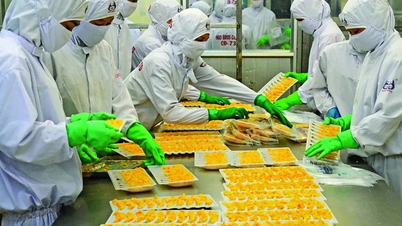


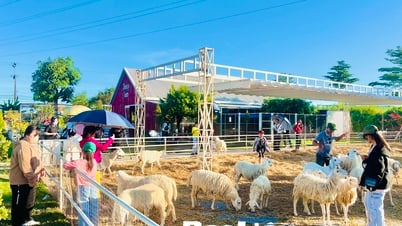





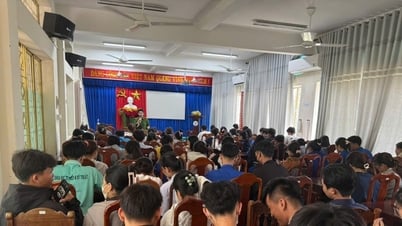

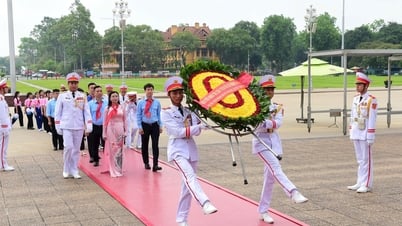









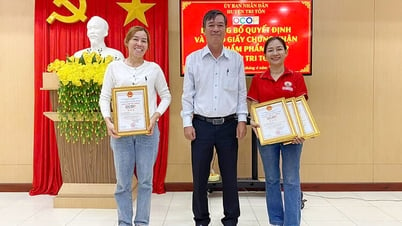

Comment (0)